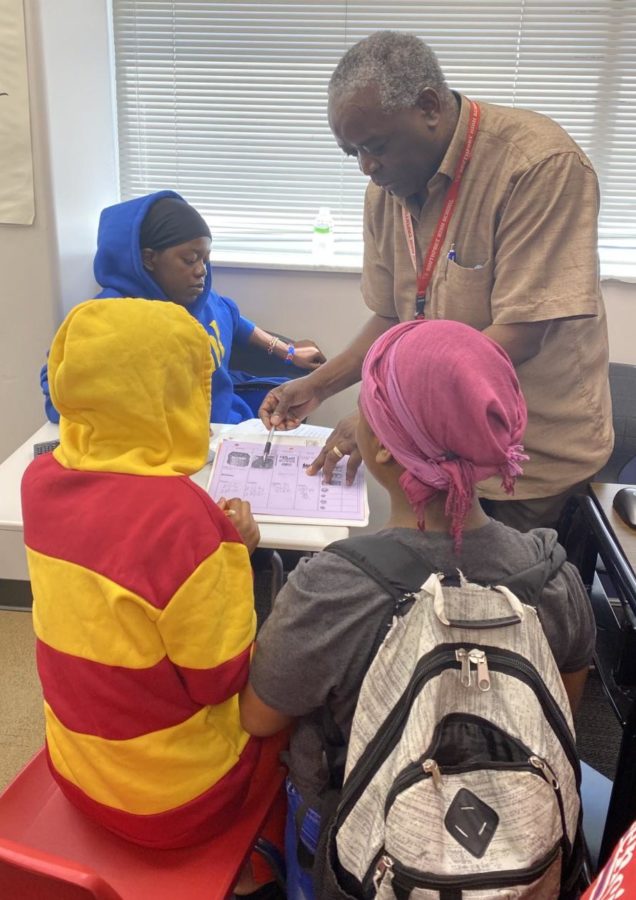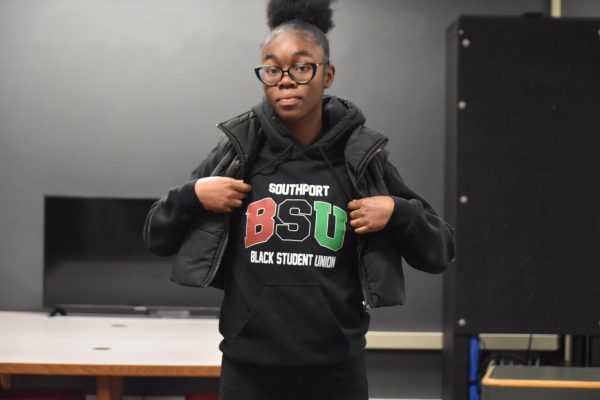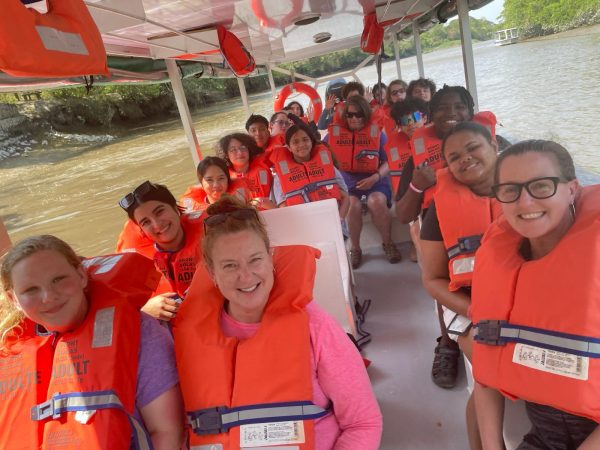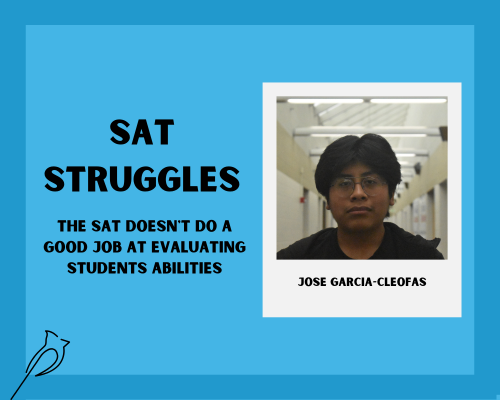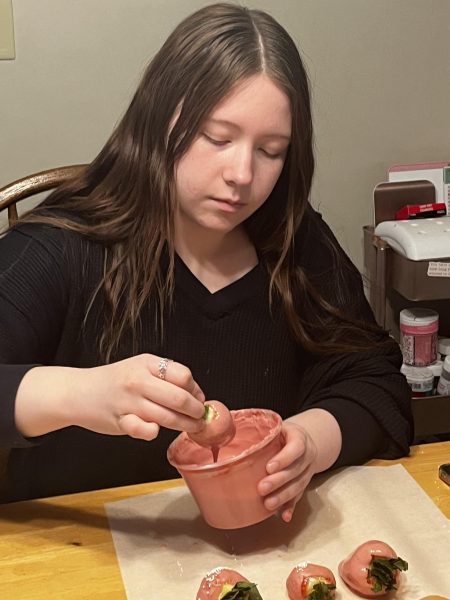Square one
How the EL department is helping African students
Juniors Eliza Nyasia (blue), Rita Yalala (pink) and freshman Chantal Tubonge (yellow) review math homework on May 10 with Swahili translator Patrick Mulwale. They meet together during every ipass.
The student demographic at SHS consists of a wide array of students from different backgrounds. This year, the EL department has been adapting to the new population of Swahili students to develop teaching methods that best work for them.
EL department chair, Amy Peddie, has taken her love of different cultures and teaching to help these students. Although it has been a challenge, it has been a learning experience for the teachers and staff involved in the EL program.
“It’s always hard when the population changes,” Peddie said. “You get used to one population from one part of the world and their culture and how they adapt to school, and then you get a new population with different norms.”
Initially, communication was a big barrier that the staff involved in the EL department had to overcome in order to help the African students learn. Since there had never been such a large number of students from Africa at Southport, there were difficulties finding a translator.
The department was eventually able to hire Patrick Mulwale to translate for the Swahili students. Beyond translating, Mulwale has helped Peddie to better manage her large classes.
“He knows how to connect with the kids…,” Peddie said. “He is able to have a really strong relationship with the kids, and so they listen to him. And they focus, even when they don’t want to.”
As part of her job, Peddie helps place students in the correct level of English class. She noticed that although the African students were able to speak English, they were not able to read or write as proficiently.
One of the EL classes, an English 9 class taught by Erin Ancelet, focused on helping improve reading and writing skills. Freshman Debora Emmanuel, who comes from Tanzania, said that she enjoyed being in class.
“It’s very helpful because I can talk to other Africans,” Emmanuel said.
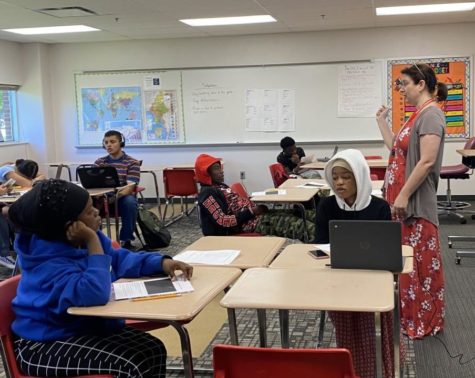
Peddie said the students love to learn and go to school, despite the language barrier. She noticed that they were excellent self advocators and weren’t afraid to ask for help when they needed it.
Freshman Paulo Seti, who is also from Tanzania, expressed how proud he was to be able to go to school in America and to be able to get an education. He wants to get better at speaking English so that he can work as a truck driver.
“It’d be a lot easier to speak to the people, they understand what I’m trying to say,” Seti said. “That’s the good thing about (EL classes).”
EL teachers, with the aid of Mr. Patrick, have been communicating with other teachers of the students to assure success in all of their classes. They also have been trying to take advantage of the extra time during fifth period on Wednesdays to start a basic reading program for the students.
Although a lot of progress has been made, the EL staff want to take what they’ve learned this year and improve in order to better support the African students in their reading and writing skills.
“We’re still learning and we’re gonna have to rethink some new strategies for next year,” Peddie said. “It’s still a work in progress.”

Hello! My name is Rin Diki and I’m a sophomore at SHS. This is my first year as a Culture Reporter for The Journal. Unfortunately, due to scheduling...


